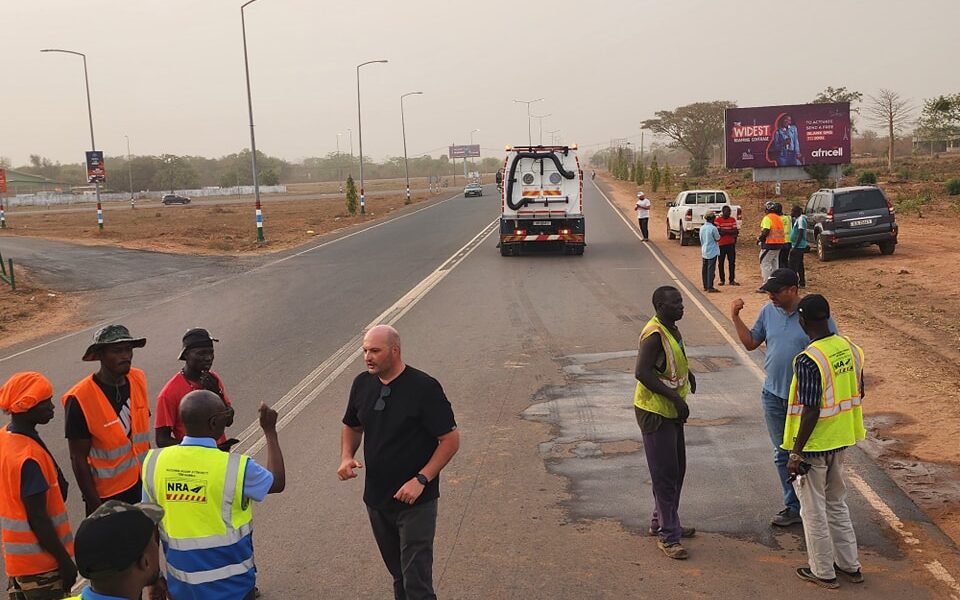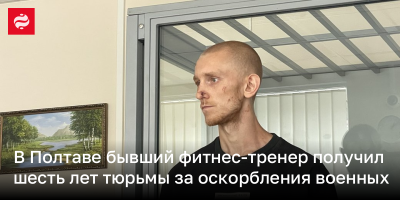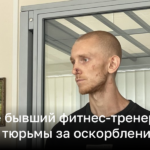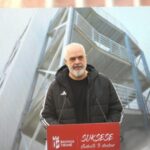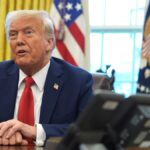– Advertisement –
Since assuming office in 2016, President Adama Barrow’s government has made road construction the cornerstone of its development agenda.
While infrastructure development is undoubtedly important, the government’s singular focus on building roads has come at the expense of other critical sectors. The result? A declining standard of living for Gambians, a struggling health care system, rising crime rates, and deteriorating educational outcomes.
It is time to ask: should road construction be the only vehicle to development? It is very sad to hear President Barrow brag about constructing more roads than Jawara and Jammeh put together, but he needs to be reminded that he borrowed more funds than Jawara and Jammeh put together. The current national debt is more than D120 billion and sinking this country with overburden debt, even though the government is claiming that the national debt stands at D110 billion.
– Advertisement –
There is no denying that the construction of new roads and the rehabilitation of existing ones have brought some visible changes to The Gambia. Improved road networks can boost trade, enhance connectivity, and facilitate economic activity. However, these benefits are meaningless if they do not translate into tangible improvements in the lives of ordinary Gambians. Besides, the foreign companies constructing these roads ship out all the profits from the country and therefore the trickle-down effect of such investments will never happen, in addition to the bulk of their wages bill are paid to foreigners.
While the government celebrates its road projects, the reality on the ground tells a different story. The cost of living has skyrocketed, making it increasingly difficult for families to afford basic necessities like food, housing, and healthcare. Unemployment remains high, particularly among the youth, fueling frustration and social unrest. Crime rates are on the rise, as desperate citizens resort to illegal means to make ends meet, and this translates to the increase in armed robberies, gambling, drug use, and drug peddling. Meanwhile, the quality of education continues to decline, with students performing poorly in national and international exams and many schools lacking basic resources and qualified motivated teachers.
This pornographic obsession with road construction leads to gross neglect of critical sectors such as health care, education, agriculture, environmental sustainability, to name a few. The Gambia’s health care system is in crisis. Hospitals and health centres are underfunded, understaffed, and ill equipped to meet the needs of the population. Maternal and child mortality rates remain alarmingly high, and preventable diseases continue to claim lives. While roads may improve access to health care facilities, they are useless if those facilities lack the resources to provide quality care. Mean while President Barrow, his ministers and directors, have budgeted millions of dalasis for overseas treatments for themselves and their families.
– Advertisement –
The future of any nation lies in its education system. Yet, in The Gambia, schools are overcrowded, teachers are underpaid, and students lack access to basic learning materials. The government’s failure to invest in education has resulted in declining academic performance, and a generation of young people ill-prepared to contribute to the nation’s development. But this shameless government would brag about the tremendous job being done by the MRC Holland Foundation in building classrooms as theirs. However, while the public schools are deteriorating, ministers, presidential advisers, managing directors, director generals and senior civil servants are sending their kids to private schools such as Marina International, Maarif, SBEC and so forth. I sometimes wonder how a minister can afford to send two to three children to a private school with the salary he or she is earning.
The rising cost of living is perhaps the most pressing issue facing Gambians today. Inflation has eroded purchasing power, and many families are struggling to put food on the table. While roads may facilitate the movement of goods, they do little to address the root causes of poverty and inequality in this country. How much was the cost of a bag of rice, a loaf of bread, a cup of sugar, a kilo of onion, a litre of vegetable oil, a litre of palm oil, a kilo of beef, whole chicken and the like in 2016? How much are these items costing today? But you know what, President Adama Barrow does not feel it, for he is given more than D100,000 daily for his depense (fish money). Amazing. “He who feels it knows it” as Bob Marley sang, and Barrow and his cronies are not feeling it.
The increase in crime is a direct reflection of the government’s failure to address unemployment, social inequality and security reform. Without meaningful economic opportunities, many young people are turning to crime as a means of survival. Building roads will not solve this problem; what are needed are comprehensive policies to create jobs and improve social services. Security reforms should have been evidence today but it is still a dream. The security forces are underpaid, ill equipped, demotivated, and struggling to feed their families. How could one in such a condition secure the lives and properties of the citizens?
A UDP government will have a balance approach to development, giving the critical sectors the attention they deserve, a people-based development. Development is not a one-dimensional concept. It encompasses economic growth, social progress, and human well being. While infrastructure development is important, it cannot be pursued in isolation. The government must adopt a balanced approach that addresses the needs of all sectors and prioritises the welfare of its citizens. As Frantz Fanon says, development should prioritise the well being, dignity, and self determination of individuals and communities. Instead of giving money and buying voters, empower the citizens to earn their own money and take care of their families. A UDP government will prioritise investments in health care, education, job creation, and social services. We will partner with Gambians in the diaspora and not fight them.
Overreliance on road construction as a driver of development is shortsighted. A UDP government will diversify the economy by investing in agriculture, tourism, and other sectors with the potential to create jobs and reduce poverty. Concrete steps will be taken to stabilise prices, increase wages, and provide social safety nets for vulnerable populations.
A UDP development policy will be inclusive and participatory. A UDP government will engage with communities to understand their needs and priorities rather than imposing top-down solutions. It is very easy to sit in your air-conditioned office in Banjul and decide that you will construct a road between Alpha Sanna and Kaur Janneh Kunda for example while the priority for the people of Alpha Sanna is access to clean water and not a road. Under a UDP government, such misguided development policies will not be repeated.
Road construction is not a panacea for development. While it may bring some benefits, it cannot address the deep-rooted challenges facing The Gambia. The government’s narrow focus on infrastructure has come at the expense of health care, education, job creation, and the well being of its citizens. If President Adama Barrow’s administration is not serious about development, it must adopt a more holistic approach that prioritises human capital, economic diversification, and social progress. The Gambia deserves more than just roads; it deserves a future where every citizen can thrive. A UDP government will reallocate resources to prioritise healthcare, education, job creation, price stabilisation, and social services. A comprehensive development plan that goes beyond infrastructure will be developed through engaging with citizens to understand their needs and aspirations. Finally, a UDP government will hold itself accountable for improving the standard of living for all Gambia.
The author, Tombong Saidy, an economist, is the senior administrative secretary for media and communication in the opposition United Democratic Party.

